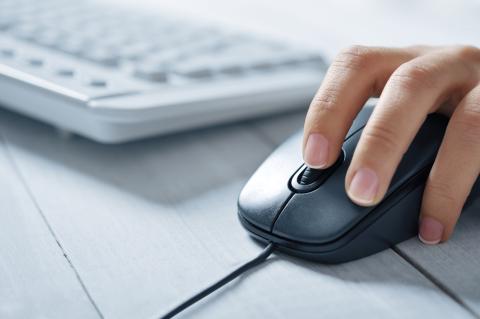Powassan Virus: Reporting and Surveillance
Powassan virus is a category II reportable condition in Wisconsin.
Health care providers should report to the patient’s local or Tribal health department in one of these ways:
- Electronically, through the Wisconsin Electronic Disease Surveillance System (WEDSS).
- By calling the Bureau of Communicable Diseases at 608-267-9003.
Complete your report within 72 hours of recognizing a case.
To learn more, visit the Wisconsin Department of Health Services (DHS) webpage on Disease Reporting.
DHS surveillance resources
- Arboviral Infection Case Reporting and Investigation Protocol (previously called EpiNet)—Arboviral Infection, P-01930 (PDF)
- Arboviral disease management, including surveillance, testing, reporting, and follow-up, in humans and animals—Arbovirus Management Protocol, P-00894 (PDF)
- Article in the Wisconsin Medical Journal about Powassan virus infections—Tickborne Powassan Virus Infections among Wisconsin Residents P-01295 (PDF)
- Preparation and response—Vectorborne Disease Toolkit, P-01109 (PDF)
CDC provider resources
- Clinical presentation of Powassan virus—Clinical Signs and Symptoms of Powassan Virus Disease
- Guidance on diagnostic testing —Clinical Testing and Diagnosis for Powassan Virus Disease
- Clinical management and prevention—Treatment and Prevention of Powassan Virus Disease
Diagnostic testing
Most often, lab diagnosis of Powassan virus involves detecting antibodies against Powassan virus in serum or cerebrospinal fluid (CSF).
Diagnostic testing for Powassan virus is not widely available at commercial labs. However, health care providers can request an arbovirus immunoglobulin M (IgM) antibody panel through the Wisconsin State Laboratory of Hygiene (WSLH). It includes testing for West Nile, St. Louis encephalitis, Jamestown Canyon, La Crosse encephalitis, eastern equine encephalitis, and Powassan viruses. Clinical features of these viruses overlap. If Powassan virus infection is suspected, consider concurrent testing for other domestic arboviruses.
The WSLH arbovirus IgM antibody panel screens for evidence of infection through IgM antibody capture enzyme-linked immunosorbent assay (MAC-ELISA) or microsphere immunoassay (MIA) performed on serum or CSF. The WSLH will forward specimens with positive IgM results to the CDC for confirmatory testing by plaque reduction neutralization test (PRNT).
The arbovirus IgM antibody panel is available at the WSLH both fee-exempt and fee-for-service. It isn’t required for patients’ symptoms to meet the DHS Division of Public Health (DPH) clinical criteria to submit serum or CSF specimens to the WSLH for fee-for-service arboviral screening.
Arbovirus surveillance and testing
DPH monitors for Powassan virus as part of our enhanced arbovirus surveillance. Testing for Powassan virus as part of a DPH investigation may be fee-exempt. Please contact a vectorborne disease epidemiologist at 608-267-9003 for fee-exempt approval.
We consider fee-exempt arboviral testing for patients who meet any one of the following criteria:
- Positive IgM and/or immunoglobulin G (IgG) commercial test results (performed in labs other than the WSLH).
- The patient has signs and symptoms of meningitis (fever, headache, or nuchal rigidity) or encephalitis (fever, headache, altered mental status ranging from confusion to coma), or acute flaccid paralysis with no other lab diagnosis.
- The patient has a diagnosis of Guillain-Barré syndrome and no other lab diagnosis.
- The patient meets the DPH arboviral disease clinical criteria, but lacks insurance coverage or the ability to pay for testing.
Instructions for collection and shipping of clinical specimens to the WSLH
For reliable antibody detection, providers should collect specimens between three days and 12 weeks after symptom onset. Samples collected less than eight days after illness onset may not demonstrate IgM reactivity due to the time needed to develop an antibody response. Repeat IgM testing in a convalescent sample may be indicated for patients who test IgM negative in a specimen collected early in the course of illness.
Submit 3–7 mL of serum and/or >1 mL of CSF in sterile screw-capped vials on ice using a WSLH kit #22 or equivalent with five days of collection. It is recommended that you submit a paired serum specimen with a CSF specimen. Specimens should be triple packaged as a Category B Biological Substance (include UN3373 label).
Fee-exempt testing
Fee-exempt testing submissions must include a WSLH Enhanced Wisconsin Arbovirus Surveillance form. A DPH vectorborne disease epidemiologist provides the form.
Fee-for-service testing
Fee-for-service testing submissions must include a WSLH Communicable Disease Division Requisition Form B. Please contact the WSLH Clinical Orders at 800-862-1088 or 608-224-4275 to obtain blank copies of Requisition Form B and to order specimen shipping kits.
The lab requisition form must be as complete as possible, including:
- Patient name
- City
- Date of birth
- Specimen type
- Submitting agency
- Onset date
- Signs and symptoms
- Collection date
Testing for Powassan virus may be delayed on specimens missing these data.
Ship specimens with the appropriate form fully completed to:
Wisconsin State Laboratory of Hygiene
2601 Agriculture Drive
PO Box 7904
Madison, WI 53718
Contact WSLH customer service at 800-862-1013.
Clinical diagnosis of Powassan virus can be difficult. Many of the signs and symptoms of Powassan virus are similar to other viral infections.
A preliminary diagnosis can be made using a patient’s clinical signs and symptoms, travel history, and risk activities. Lab testing can confirm a preliminary clinical diagnosis.
Currently, there isn’t a vaccine to prevent Powassan virus or a specific treatment for Powassan virus.
Over-the-counter pain relievers may help with symptoms. In severe cases, patients may need supportive treatment in a hospital.
For more information, visit the CDC webpage on Treatment and Prevention of Powassan Virus Disease.
Contact us
Questions about illnesses spread by ticks? We’re here to help.
Bureau of Communicable Diseases
Phone: 608-267-9003
Fax: 608-261-4976

